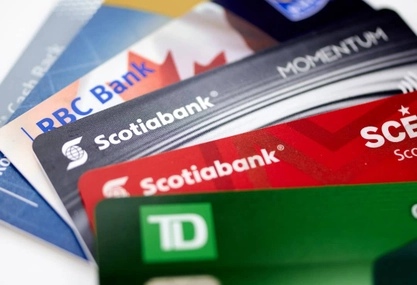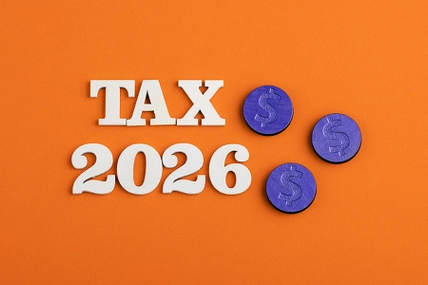Here are 8 noticeably new points of the Law on E-Transactions 2023 which was passed by the XVth National Assembly of the Socialist Republic of Vietnam at its 5th session. This Law takes effect on July 01, 2024, and replaces the Law on E-Transactions No. 51/2005/QH11
- 1. Law on E-Transaction 2023 has no regulations on the contents of e-transaction
- 2. Supplement the definition “e-signature”,“digital signature”, “e-contracts”
- 3. A digital signature can be an e-signature that fully meets the following requirements
- 4. Amend the regulations on prohibited acts in e-transactions
- 5. Supplement the conditions for format conversion between paper documents and data messages
- 6. Point out the state management of e-transactions
- 7. Trusted services are initially prescribed in the Law in order to promote e-transaction
- 8. More regulations on e-certificate
1. Law on E-Transaction 2023 has no regulations on the contents of e-transaction
Article 1, Law on E-Transactions 2023 provides for the conduct of transactions by electronic means, does not stipulate the contents, conditions, and forms of transactions.
Where other laws stipulate or do not provide for transactions conducted by electronic means, the provisions of this Law shall apply.
Therefore, the e-transactions shall be adjusted by the legal provisions of law in that sector.
In case other laws stipulate not to conduct transactions by electronic means, the provisions of that law shall apply.
2. Supplement the definition “e-signature”,“digital signature”, “e-contracts”
Article 3 of the Law on E-Transactions 2023 supplements a number of definitions on “e-signature”, “digital signature”, “e-contracts”, and “digital data”, in particulars:
- E-signature means a signature created in the form of electronic data attached to, or logically combined with a data message to identify the signer and confirm his/her consent to the data message.
- Digital signature means an e-signature using an asymmetric key algorithm, consisting of a private key and a public key, in which the private key is used to digitally sign and the public key is used to verify the signature. Digital signatures ensure authenticity, integrity, and non-repudiation, but do not guarantee the confidentiality of data messages.
- E-contracts mean contracts established in the form of data messages.
- Electronic data mean data created, processed and stored by electronic means.

3. A digital signature can be an e-signature that fully meets the following requirements
In accordance with Clause 3, Article 22, Law on E-Transactions Digital signature is an e-signature that fully meets the following requirements
- Certifying the signatory and as well as the approval of such signatory to the content of the signed data message;
- Digital signature creation data are attached only to the content of the approved data message;
- Digital signature creation data are under the control of only the signatory at the time of signing;
- All changes to the data message after the time of signing are detectable;
- Being secured by a digital signature certificate.
- Means of creating digital signatures must ensure that data to create digital signatures are not disclosed, collected or used for the purpose of forging signatures; ensure that the data used to create digital signatures can be used only once; must not change the data to be signed.
4. Amend the regulations on prohibited acts in e-transactions
Article 6, Law on E-Transactions 2023 prescribes prohibited acts in e-transaction clearly and creates favorable conditions for the legal application.
Prohibited acts include:
1. Taking advantage of e-transactions to infringe upon national interests, national security, social order and safety, public interests, lawful rights and interests of agencies, organizations and individuals.
2. Illegally obstructing or preventing the process of creating, sending, receiving and storing data messages, or committing other acts to destroy the information system serving e-transactions.
3. Illegally collecting, providing, using, disclosing, displaying, distributing and trading data messages.
4. Counterfeiting, falsifying or illegally deleting, canceling, copying, or moving part or whole of a data massage.
5. Creating data messages in order to commit illegal acts.
6. Tricking, forging, appropriating or illegal using e-transaction accounts, e-certificates, e-signature certificates, or e-signatures.
7. Obstructing the selection of performing e-transactions.
8. Other prohibited acts as prescribed by law.
5. Supplement the conditions for format conversion between paper documents and data messages
The Law on E-Transactions 2023 supplements the conditions for format conversion between paper documents and data messages.
Accordingly, a data message in paper form shall be converted when fully satisfying the following requirements:
- Information in the data message must be kept intact as that in the paper document;
- Information in the data message is accessible and usable for reference;
- Having a separate symbol certifying that it has been converted from a paper document to a data message and information of the agency, organization or individual performing the conversion;
- In case the paper document is a license, certificate, written certification or other written approval issued by a competent agency or organization, the conversion must satisfy the requirements specified at Points a, b and c of this Clause and must have the digital signature of the agency or organization performing the conversion, unless otherwise provided for by law.

6. Point out the state management of e-transactions
The Law on E-Transactions 2023 points out clearly that the Ministry of Information and Communications shall act as the focal point to take responsibility before the Government, assuming the prime responsibility for, and coordinating with ministries and ministerial-level agencies in, exercising the state management of e-transactions.
Within that, the Minister of National Defense shall perform the state management of e-transactions in the cipher field and digital signatures for official use on the basis of national standards and technical regulations on digital signatures as prescribed by law.
7. Trusted services are initially prescribed in the Law in order to promote e-transaction
This is the new service that is recorded in the Law on E-Transactions 2023 In accordance with Article 28 of this Law, conditions for trusted service businesses include: Time stamp service; data message certification service; public digital signature certification service.
This is the conditional business line, a trusted service provider must have a service business license issued by the Ministry of Information and Communications, except for e-contract certification services in commerce.
Responsibility of trusted service providers:
- To publicly announce the service registration process, forms and related costs.
- To ensure the 24/07 operation channel for receiving information and providing services.
- To maintain dossiers and documents and connect, provide information and report data by electronic means.
- To ensure that equipment in the information system is issued with management codes and ready for technical connection to serve the state management of trusted services.
8. More regulations on e-certificate
Law on E-Transactions 2013 amends the definition of e-certificate. In accordance with the new provisions, an e-certificate means a license, certificate, written certification, or other written approval issued by a competent agency or organization in the form of electronic data.
Currently, Law on E-transaction 2005 prescribes that an e-certificate means a data message issued by an e-signature certification service-providing organization in order to verify that the certified agency, organization, or individual is the person having made the e-signature.
Additionally, the Law on E-Transactions 2023 also supplements the regulations on the legal validity of e-certificates
Information in an e-certificate is legally valid when it fully meets the following requirements:
- The e-certificate is signed by the digital signature of the issuing agency or organization;
- Information in the e-certificate is accessible and usable in its integrity;
- Where it is required by law to indicate the time related to an e-certificate, the e-certificate must have a timestamp.
Note: E-certificates issued by competent foreign agencies and organizations that are recognized and used in Vietnam must be consular legalized, except for exemption cases under Vietnamese law.

_2609100619.png)








